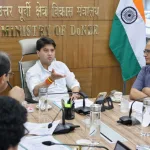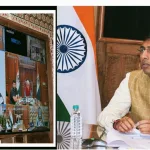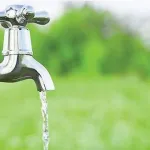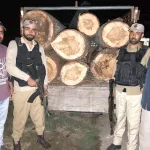Election season in Jammu Kashmir has arrived. After successful Parliamentary election to elect representatives for 18th Lok Sabha it is now the turn of elections to other Fora of democratic institutions. Elections for Legislative Assembly, Panchayat and Urban Local Bodies to be followed by BDC and DDC are lined up. The election Commission has work cut out for it. Indications available are pointing to its preparedness.
We are sure that all these elections will be held in free and fearless manner as was witnessed recently. History will record in appreciative method the role of NDA government that ensured a credible election and restoration of faith of the people of Jammu Kashmir; Kashmir valley in particular in Indian democracy. Citizens of Jammu Kashmir, we know, have had a distressing experience in past elections held under the regime of King’s Parties’.
A king’s party is a political party that advocates for the preservation or restoration of a monarchy/dynasty, authority in a democratic country. The aim of such parties is to protect the interests of the ruling dynastic families, aristocracy and traditionalist groups. The core of the king’s party support often comes from the wealthier and influential sections of society who have vested interests in maintaining the status quo.
There are different forms of king’s parties such as absolutist monarchism, constitutional monarchism, authoritarianism and symbolic monarchism. All this is not our subject here. “We the people of India that is Bharat” including citizens of Jammu Kashmir are aware of the King’s Parties and their leaders. Formation of these parties as has been termed by leading freedom fighters like Lal Lajpat Rai as a “Safety valve” as back as in 1916.
These parties have activated their resources in visibly desperate manner to protect their hold on the system that has already started slipping out of their hands. Forces inimical to Bharat are in natural course of action extending the helping hand.
It is now the responsibility of voters for what choices they make. Will the citizens continue to cling to these opportunists who can go to any lengths as they have shown in the past to emotionally black mail people? Or will they take charge of their own destiny and protect future of coming generations. Coming elections provide an opportunity to show the door to divisive tendencies and opt for underlying unifying affinities that transcend distinctiveness observable on surface.
Past Reminisces
The menace of rigging has afflicted our electoral process in the past and seriously dented the impartiality of the procedure of Election adopted soon after 1947 when the erstwhile princely state acceded to the Dominion of India.
The elections were conducted by the State’s election and franchise commissioner in 1951. It was supposed to be the Constituent Assembly of the state of Jammu Kashmir. First the delimitation of territorial constituencies was done arbitrarily with total disregard to the actual ground realities. Since no census was conducted in 1951 the figures arrived at were capriciously used to suit the King’s party.
43 assembly segments were allotted to Kashmir valley that had a population of 17, 12, 964 persons against 30 segments for Jammu with a population of 15, 40 888 persons. Other factors like area, difficult terrain and communication tools including roads notwithstanding, it defies the logic that 17.12 Lakhs get 43 representatives and 15. 40 get only 30 legislators. Fairness would have demanded that for a population of 32,53,852 persons seats should have been divided in a manner that approximately allowed 44,500 to have one elected representative in the Constituent Assembly. It would have been 38 seats for Kashmir valley and 35 odd seats for Jammu region. Repeat population as the only benchmark. Had other factors been taken into account Jammu would have qualified for more seats. Not in Jammu region only even within the valley proper distribution of seats was not based on merit. It was more of political advantage consideration.
Election manipulation
The process of elections in past was highly irregular and manipulated as is substantiated by the facts available. Voting to elect the Constituent Assembly of Jammu Kashmir were held in September-October 1951. All the 43 seats allocated to Kashmir went to the King’s Party who were elected unopposed. In Jammu, 13 candidates belonging to the opposition Jammu Praja Parishad had their nominations rejected on insignificant and dubious technicalities. Forcing the Praja Parishad to boycott the elections to deny credibility to manipulated process, King’s Party won all the 75 seats to the Constituent Assembly, which convened on 31 October 1951.
In 1957 the election was conducted by the State’s Franchise Commission in March and the final results were announced on 3 June. Of the 75 seats of the Legislative Assembly, 43 seats were allocated to the Kashmir Valley, 30 to Jammu, and 2 to Ladakh.
In the Valley, 30 seats were unopposed, resulting in wins for the National Conference; 10 more seats were declared elected after the rejection of the nomination papers of the opposing candidates. The 1962 elections were the first elections in the state conducted by the Election Commission of India. Of the 43 constituencies in the Kashmir Valley, 32 were unopposed. Overall, the National Conference won 41 of the 43 seats in the Valley.
Again in 1967 the nomination papers of 118 candidates were rejected on technical grounds, 55 of them because the candidates had failed to take the obligatory oath of allegiance to the Constitution. As a result, 22 seats in the Valley were unopposed, resulting in a win for the Congress candidates. Simultaneously, elections were also held for the Lok Sabha in the 6 Lok Sabha constituencies of the State. Members of the Parliament were till then nominated by the ruling party.
Sustaining Democracy
Post 2019 after reading down of temporary, discriminatory and disabling constitutional scheme under Article 370 the ground has been prepared for the real democracy in Jammu Kashmir. After uninterrupted application of the Constitution of India and extension of 73rd and 74th Amendments even 3-tier Panchayat Raj system stands firmly established. It is now time and responsibility of the people of Jammu Kashmir, to nourish, strengthen and sustain these institutions in real democratic spirit.
Allowing traditionalist to hijack the process by emotional and fear mongering tactics will ultimately harm the interests of common people, under privileged and disadvantaged in particular. Let people decide what they think is good for them. Conscious citizens, thinkers and visionary social leaders can play a role under the concept of Lok-Mat-Parishkar or Refining Public Opinion as propounded by Pt. Deendayal Upadhyaya.
Traditionalists have evolved a self-sustaining and self-serving mechanism that allowed them to play musical chairs within their comfort zone. They are happy exchanging positions within their ranks occasionally to exhibit change at helm. But all of them have a vested interest in continuing with the status quo. 2019 historic decision has disrupted this process. Now is time for people to take charge of their own destinies.
(The Author is a former Member of Legislative Council of Jammu Kashmir and spokesperson of BJP-JK –UT)








